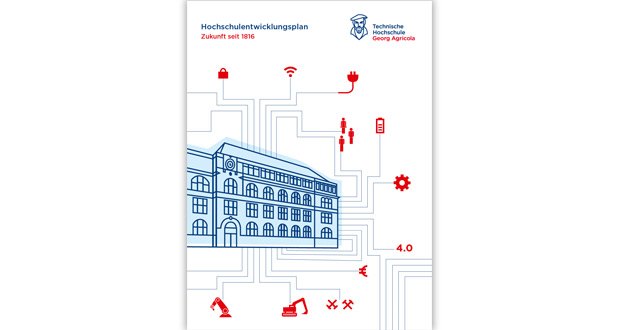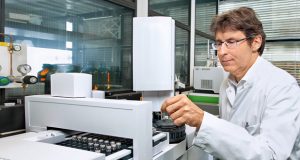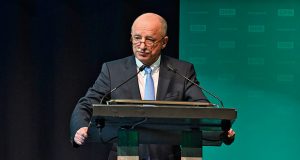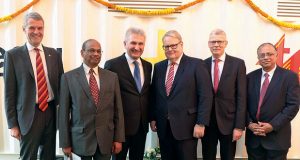Digitalisation, competitive pressure, social change: Trends such as these are having a significant impact on requirements for universities. The Georg Agricola Technical University (THGA) in Bochum/Germany, has been focussing on the challenges of the future for some time. In a new university development plan, which it has published at www.thga.de/hochschulentwicklung, the THGA sets out its objectives through to 2022 (Figure 1).
The THGA wants to remain attractive to students and cooperation partners, work from a broad engineering basis and further increase the quality of teaching and research – these are the cornerstones for the coming years. This marks a further important step in the development of the university, which has a 200-year history, says President Prof. Jürgen Kretschmann. “The German coal mining industry, which shaped both our tradition and our self-image, came to an end in 2018. This is a source of deep regret, but we have been repositioning ourselves for some time – as a university of the post-mining era and the industrial future – in order to face up to the complex challenges of tomorrow.”
Immediately following the publication of the first university development plan in 2014, the THGA initiated a comprehensive development process to embrace new strategic opportunities. Many of these have already been implemented. The new university development plan is therefore both a forecast and a status report – and above all a joint publication with contributions from both THGA academics and administrative staff.
The university development plan highlights some areas of action in particular, including the further development of part-time study, which has been on the increase for some years at the THGA. Classes and lectures take place in the evenings and at weekends to give students the flexibility to combine study, family and a career. The THGA is one of the few universities not to charge extra tuition fees for this – a real success story in the region.
The THGA also wants to systematically raise its research profile over the coming years and improve prospects for young researchers at the university. An important aspect of this falls under the motto “Advancement through education.” As an open university dedicated to equal opportunities, the THGA will also continue to actively support those seeking new opportunities through education. “This is how we can contribute to accomplishing perpetual obligations, with teaching, research and knowledge transfer, to the structural change in the former mining regions, to the energy transition, to sustainable raw material extraction and to the industry of the future,” says Prof. Kretschmann.
The THGA also wants to expand its international activities in teaching, research and knowledge transfer by 2022, says Prof. Kretschmann. “It is our tradition to see new concepts as technological and social opportunities and as a university we help shape the transition to make the world a better place – not only in the Ruhr region, in Europe and throughout the world.” Among other things, the university is planning to offer more English-language modules and to make its degree courses more international. It has already taken an important first step in this direction with its “European Engineer” (EUR ING) degree. As of this semester, graduates can also study for a part-time Master’s degree at the THGA. Neither an academic degree nor a job title, the EUR ING serves as a common basis for engineering training and activities throughout Europe. It is proof that the holder of the title has received extensive training and has the relevant professional experience as an engineer, and is recognised as a qualification throughout Europe. (THGA/Si.)



